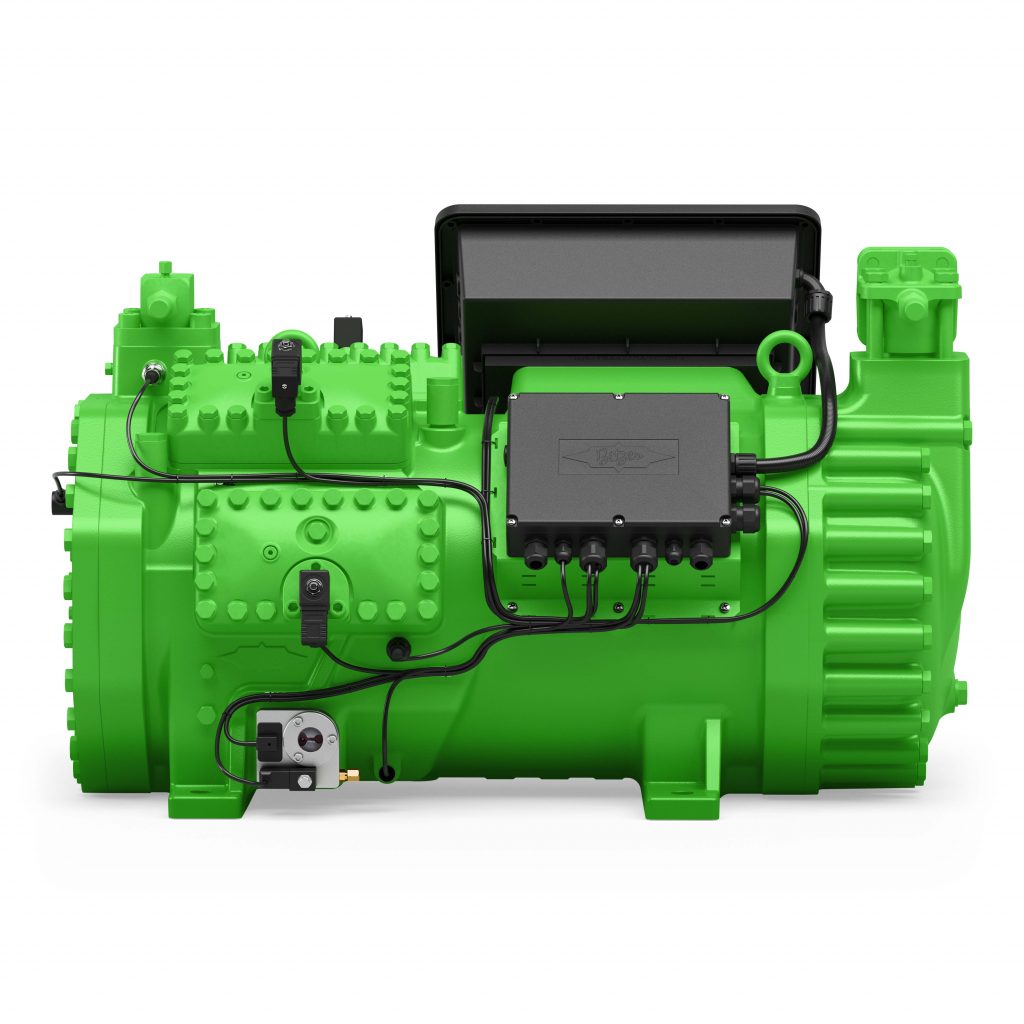Natural refrigerants: Interview mit Dr Heinz Jürgensen
Many companies are hesitant to switch to natural refrigerants. Why do you think that is?
Jürgensen: My impression is that many refrigeration system operators – most notably, smaller supermarkets, restaurants, bakeries and butchers – are unaware of how quickly and extensively these changes will affect them. They have limited exposure to the flow of information regarding the F-Gas Regulation and other refrigerant regulations. For them, the refrigeration system is a tool that needs to operate as efficiently and inexpensively as possible, which ultimately reduces the demand for long-term solutions in the market. It’s quite possible that people are unaware of just how urgent the regulation timeline is. If people would only consider today which refrigerants will still be available for system maintenance and operation in 15 to 20 years, the demand for CO2, propane and ammonia solutions would certainly increase.
“Many refrigeration system operators are unaware of how quickly and extensively these changes will affect them.”

In just a few words, what do people need to know about the naturally occurring substances carbon dioxide, propane and ammonia when used as refrigerants?
Jürgensen: Propane, or R290, is a suitable refrigerant for commercial refrigeration. It has a boiling point of -42°C and can evaporate at temperatures of -40°C and higher. Much like R404A, propane can accommodate fluctuating temperatures without issue when compressing. As a hydrocarbon, propane is extremely flammable and therefore requires an expanded risk assessment for work environment as well as implementation of the corresponding risk minimisation measures. Especially when it comes to maintenance and repair, safety rules need to be carefully and strictly observed. At BITZER, we’ve been using propane, for example, with reciprocating compressors for many years and can accommodate the full capacity range from 2-cylinder to 8-cylinder compressors. Even compact screw compressors for air conditioning and process cooling as well as semi-hermetic screw compressors for compound systems operate with propane and the similar refrigerant propylene.
Carbon dioxide, or R744, is already a very common refrigerant. It’s not flammable, but requires a much higher pressure level, with potential back pressures of 90 to 130 bar, which means the entire system design, control and maintenance are different. For two-stage CO2 systems, the BITZER portfolio features specially adapted compressors for low and medium temperature stages. This type of system design initially requires comprehensive training, which we offer at the SCHAUFLER Academy. Systems with CO2 compressors can be quite competitive, especially when medium to higher capacities are required in commercial refrigeration.
Ammonia is typically used as a refrigerant in large systems with a capacity of more than 100 kW, but generally not in the vicinity of the general public. With steel pipes, flooded evaporators and insoluble oils, the proven system technology for ammonia is not a suitable solution for typical commercial refrigeration applications. In addition, a few safety factors need to be taken into account. Due to the high charged amount, the price of ammonia is much lower than that of other refrigerants, which is also a winning argument when it comes to large refrigeration systems. BITZER has years of experience in this application range as well as new, highly efficient screw compressors in its portfolio.
In your opinion, do the refrigerant regulations also offer opportunities?
Jürgensen: It’s likely impossible to cover all applications with a single refrigerant. Most importantly, the refrigeration system needs to be specially designed for the application in question and the appropriate refrigerant of the future, thus minimizing emissions to the highest degree possible throughout the system’s service life. Still, new compressors and components offer high energy efficiency and thus the potential to reduce costs. At BITZER, we added propane compressors to our portfolio in 1987 and have been optimising them ever since. As far as we know, our newest large-scale ammonia screw compressors are truly the most efficient in their performance class. Carbon dioxide applications call for dedicated designs. Because carbon dioxide often requires two-stage operation, we offer specially adapted compressors for both the lower and higher pressure stage. As a result, we can create the affordable, potential combination of motor, pressure drop, cylinder head design and valve plates, and thus ensure that they’re highly optimised for the application in question.
Optimized for natural refrigerants: BITZER products for every field of application
BITZER supports its customers with a diverse product portfolio that is also optimized for the use of natural refrigerants. For example the new 8-cylinder reciprocating compressors for transcritical CO2
stands for full cooling capacity for large systems and heat pump applications – with fewer compressors than before.
The new enhancement of the ECOLINE CO2-series for even larger capacity ranges with CO2 as a refrigerant in refrigeration and heat pump applications is around 10% more energy-efficient than the smaller 6-cylinder compressors currently available on the market , which reduces energy consumption and emissions.
BITZER developed the 8-cylinder CO2 reciprocating compressors for systems with a larger capacity range which were once developed for use with HFC refrigerants and ammonia.
Designed for frequency inverter operation, the BITZER 8-cylinder CO2 reciprocating compressors are available in two motor variants with displacements between 69.4 and 99.2 m3/h. They’re also equipped with start unloading as well as with VARISTEP mechanical capacity control for part load operation. The 8-cylinder CO2 reciprocating compressors boast low gas pulsations, vibrations and starting currents. Improved gas guidance minimizes internal pressure drops, whilst the oil carry over rate achieves the low values typical of BITZER. Thanks to the IQ module and OLM oil management, the compressors are easy to integrate, install, operate and service.

In your opinion, what needs to happen to fundamentally increase acceptance of natural refrigerants?
Jürgensen: Refrigeration system operators need to recognize the importance of taking action, meaning it’s essential to inform them of what’s to come. Refrigeration technicians and mechatronics engineers should also learn to work with natural refrigerants. In both cases, we need to provide support in the form of information, training courses and our suitable products. I see that as our responsibility.
Thank you for the interview!
Refrigerants in Europe: BITZER information and services
SCHAUFLER Academy training courses
The SCHAUFLER Academy in Rottenburg offers refrigeration specialists a wide selection of digital and in-person training courses on a variety of topics, including how to use different natural refrigerants.
SCHAUFLER Academy Rotttenburg-Ergenzingen
The online edition of the BITZER Refrigerant Report
Since 1992, BITZER has offered the industry a reliable reference in the form of the Refrigerant Report, which outlines all key information about refrigerants. Featuring a comprehensive refrigerant table with filter function, the new, much more comprehensive edition is available exclusively online and therefore always up to date in terms of regulations and requirements.
Refrigerant Report Online Edition


